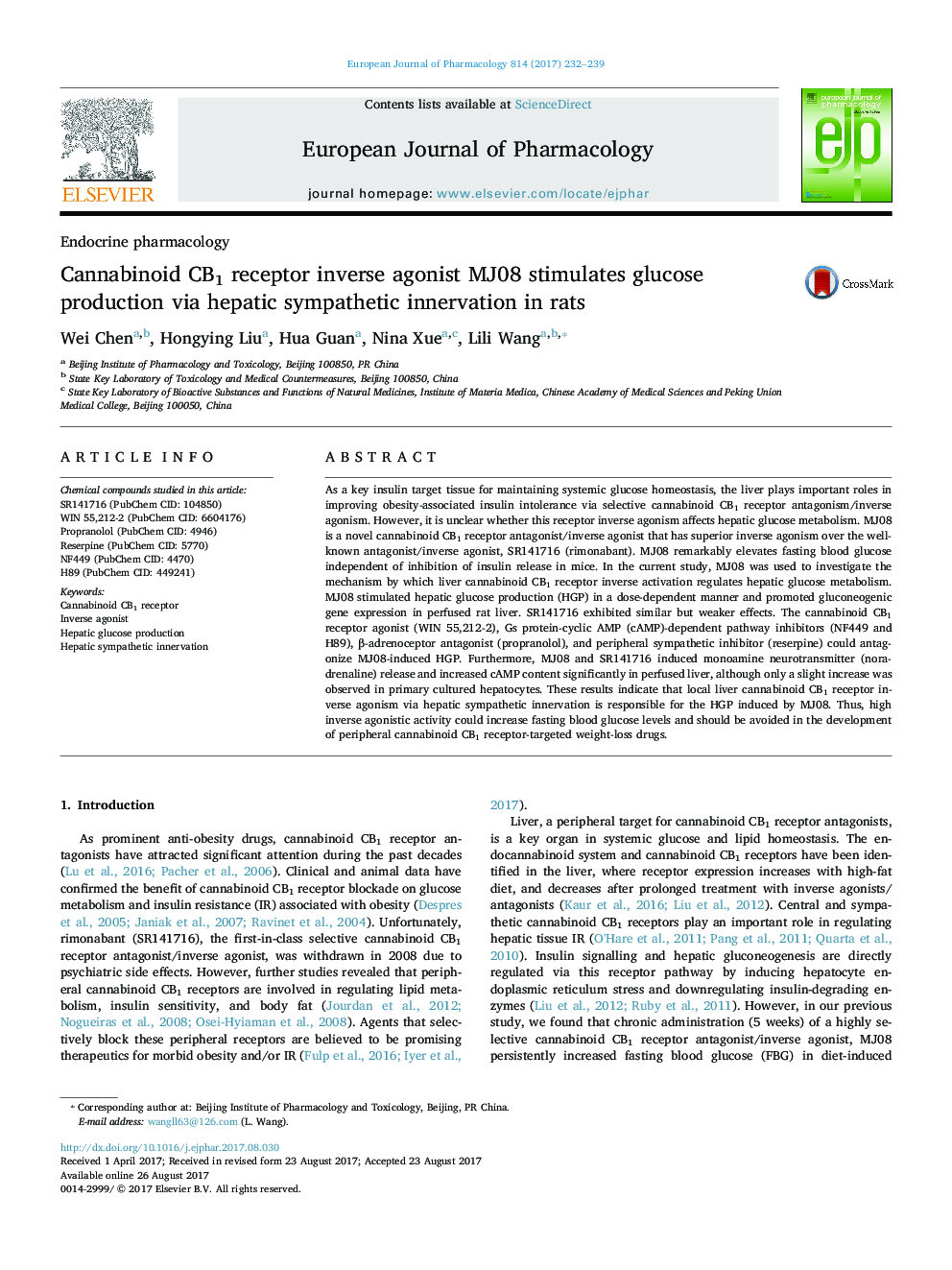| کد مقاله | کد نشریه | سال انتشار | مقاله انگلیسی | نسخه تمام متن |
|---|---|---|---|---|
| 5554376 | 1558866 | 2017 | 8 صفحه PDF | دانلود رایگان |

As a key insulin target tissue for maintaining systemic glucose homeostasis, the liver plays important roles in improving obesity-associated insulin intolerance via selective cannabinoid CB1 receptor antagonism/inverse agonism. However, it is unclear whether this receptor inverse agonism affects hepatic glucose metabolism. MJ08 is a novel cannabinoid CB1 receptor antagonist/inverse agonist that has superior inverse agonism over the well-known antagonist/inverse agonist, SR141716 (rimonabant). MJ08 remarkably elevates fasting blood glucose independent of inhibition of insulin release in mice. In the current study, MJ08 was used to investigate the mechanism by which liver cannabinoid CB1 receptor inverse activation regulates hepatic glucose metabolism. MJ08 stimulated hepatic glucose production (HGP) in a dose-dependent manner and promoted gluconeogenic gene expression in perfused rat liver. SR141716 exhibited similar but weaker effects. The cannabinoid CB1 receptor agonist (WIN 55,212-2), Gs protein-cyclic AMP (cAMP)-dependent pathway inhibitors (NF449 and H89), β-adrenoceptor antagonist (propranolol), and peripheral sympathetic inhibitor (reserpine) could antagonize MJ08-induced HGP. Furthermore, MJ08 and SR141716 induced monoamine neurotransmitter (noradrenaline) release and increased cAMP content significantly in perfused liver, although only a slight increase was observed in primary cultured hepatocytes. These results indicate that local liver cannabinoid CB1 receptor inverse agonism via hepatic sympathetic innervation is responsible for the HGP induced by MJ08. Thus, high inverse agonistic activity could increase fasting blood glucose levels and should be avoided in the development of peripheral cannabinoid CB1 receptor-targeted weight-loss drugs.
The scheme depicts the cannabinoid CB1 receptor inverse agonism by which MJ08 or SR141716 promotes the release of monoamine neurotransmitters, stimulating hepatic β-adrenergic receptors, and increasing hepatic glucose production. PKA, cAMP-dependent protein kinase; PEPCK, phosphoenolpyruvate carboxykinase; G-6-P, glucose-6-phosphatase.165
Journal: European Journal of Pharmacology - Volume 814, 5 November 2017, Pages 232-239